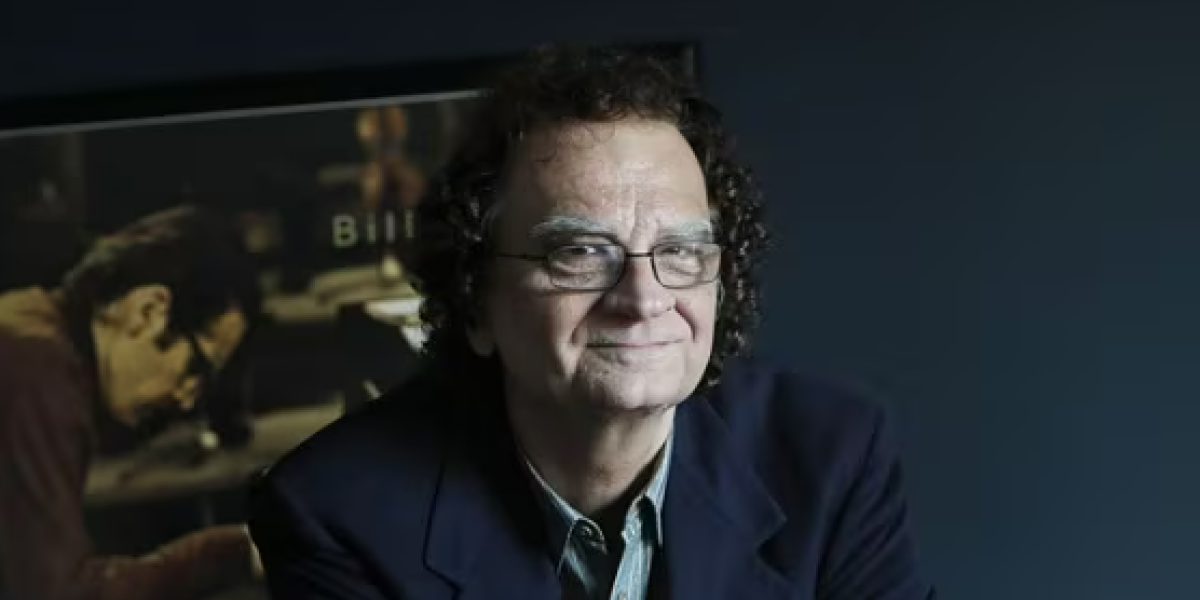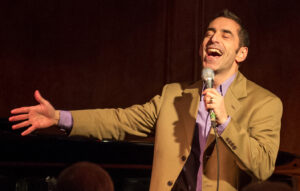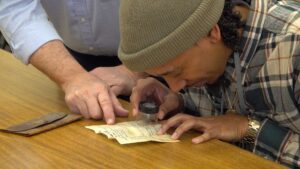THE BOSTON GLOBE – Laszlo Gardony was in the midst of a typically busy run of regional performances when he played a 5 p.m. solo piano set at the Lilypad in Inman Square on a Saturday in late September.
The room quickly filled to its capacity of 60 or so patrons seated on cushioned benches. Gardony opened his set with a piece he improvised on the spot from four random notes supplied by audience members. “I love this place because a lot of experimental music happens here,” he told the audience. “What would it be like if everybody picks a note and I make a song from it?”
What followed was a delightful, genre-crossing mix of Gardony originals and covers. Among the highlights: three pieces from his 2019 live solo-piano album “La Marseillaise” (“O sole mio,” the Denny Zeitlin tune “Quiet Now,” and his own “Bourbon Street Boogie”), John Coltrane’s “Naima,” Stevie Wonder’s “You Are the Sunshine of My Life,” and a pair of classics associated with Ray Charles (the Hoagy Carmichael standard “Georgia on My Mind” and, as an encore, the David “Fathead” Newman feature “Hard Times”).
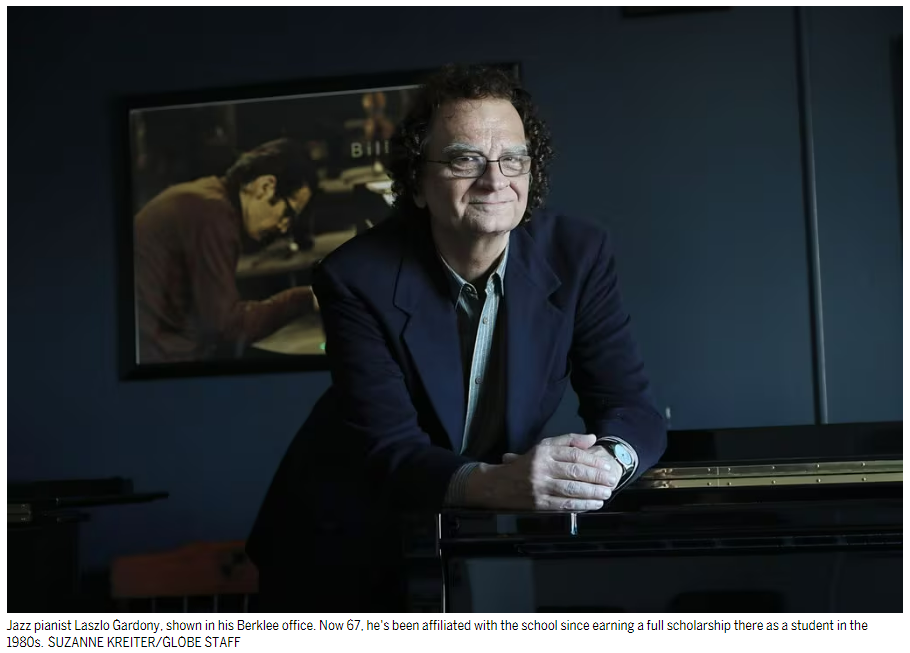
In the mix as well was Gardony’s “Irrepressible,” which also opens his most recent album, “Close Connection,” the fourth he has made since 2003 with his regular trio featuring bassist John Lockwood and drummer Yoron Israel. Like Gardony, they’re professors at Berklee College of Music.
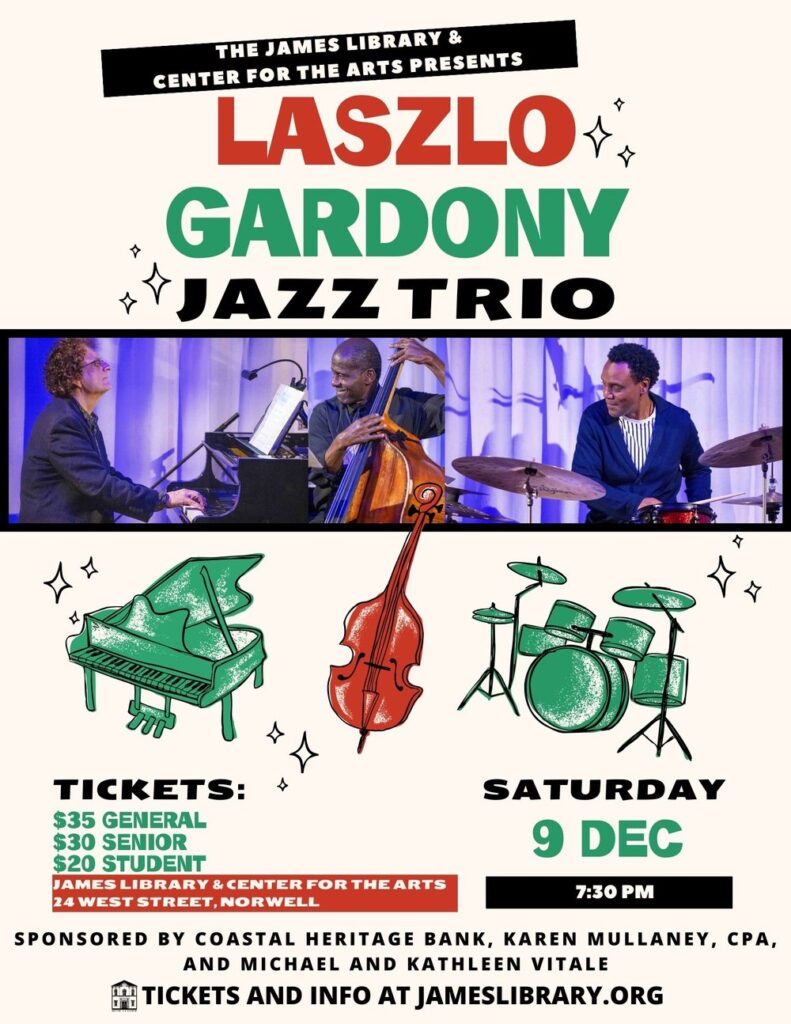
At Scullers on Friday, Gardony’s trio will be performing as a quartet, joined by tenor saxophonist Don Braden, who leads the Jazz Combo Initiative at Harvard. (On Sunday afternoon, Gardony will give another solo piano performance in South Yarmouth at the Cultural Center of Cape Cod, and on Dec. 9, his trio will perform at The James Library & Center for the Arts in Norwell.)
Whatever the context, Gardony, 67, brings a mix of influences to his music. These include classical and European folk music, gospel, jazz, progressive rock, soul, and the blues. Born in Budapest in 1956, three months before the Soviet Union deployed tanks to crush the Hungarian Uprising, Gardony graduated from the Béla Bartók Conservatory (as well as the ELTE Science University, where he earned a master’s degree in education).
He subsequently auditioned at Berklee in 1983, earning a full scholarship. He has remained Berklee-based ever since, rising through the faculty ranks from instructor to full professor.
Seated in his Berklee office, Gardony runs through some of this history. Asked to name some pianists he has taught at Berklee through the years, he mentions two who are well-known in England (Julian Joseph) and Japan (Chihiro Yamanaka), and the Cuban-American musical director of “Hamilton,” Alex Lacamoire. Leo Genovese and Yoko Miwa are two others, and he noted that Miwa is one of 11 colleagues in the Berklee piano department who were once his students.
When it’s suggested that his Lilypad concert called to mind Keith Jarrett, both for Jarrett’s renowned album “The Köln Concert” and for incorporating gospel and other genres in their work, Gardony accepts the compliment but emphasizes his own origins as an improviser,
“Well, it’s interesting,” he responds. “I never copied anyone.” By age 5, he was “writing little songs already.”
“Then I was fascinated with blues and rock ‘n’ roll as a teenager, as most of us were. But that led to improvising three hours a day, on average, which was almost like writing a diary. So it was a very personal connection with improvisation that led to this wonderful, magical moment since I was a kid.”
It wasn’t until Gardony got to the conservatory that he became aware of Jarrett.
“That’s when I first heard Keith, on recordings,” he explains. “I felt there is some common thread here. Now, what I felt was, of course, the gospel and the blues influence, and the fact that I was an improviser since a kid. He obviously is a great improviser.”
Much later, Gardony learned that Jarrett’s maternal grandmother was from Segovci, Slovenia, which was part of Hungary at the time. “So these folk rhythms, which we call uniquely Keith, are coming just as much from that region, maybe just genetically, for me as perhaps for him.
“So it was a very interesting kindred-spirit feeling. Of course, needless to say he was a much better pianist than me at the time” — he laughs — “when I was 22. But I didn’t feel that I fell in love with something other than what I’m feeling in my own heart. But I was just as influenced and interested in Bill Evans and McCoy Tyner.”
Gardony notes that Braden recognized the Tyner influence right away.
“He kind of summarized, first when he played with me, that it’s an interesting combination of the gospel elements of Keith Jarrett and McCoy Tyner’s energy and power. And I think that’s because I never just listened to one genre.
“I loved blues first. Of course, I studied classical music. I loved Bartók, and many of the folk musicians — folk music, the economy of it and the beautiful melodic content of it. And from rock, basically, that’s where you get a lot of energy and resilience, which I heard in McCoy Tyner.”
Braden, reached by phone, elaborates on how he hears Tyner fitting into Gardony’s sound. “Laszlo’s a really modern piano player, but he’s got very strong kind of New Orleans-style roots. So you hear some of those grooves from the New Orleans guys in the chords and harmony. But at the same time, he has a ‘70s-era McCoy thing going on. That’s really, to me, a distinctive combination.”
To Gardony, it’s not the mix of styles and genres his playing references that’s important.
“I think it’s just an amalgam of various styles that naturally influenced me,” he summarizes. ”I find music such a unique way of communication. My entire life proved that. I played in 27 countries. I moved to a completely different country with a completely different culture. And music was always there to connect with people I met. So music is to me maybe the most effective language, and I don’t find one dialect only to my liking.
“Of course, I don’t like bad music,” he adds, laughing. “But I think bad music is only the music that doesn’t come from the heart, or doesn’t come from really being humble with your creativity. Music flows from me, but I never get haughty about it — that this is good because I wrote it. You really do have that responsibility that what you put out there, it’s coming from a pure source. It’s coming from the universe, coming from magic, coming from a spiritual quest.”
LASZLO GARDONY
At Scullers, 400 Soldiers Field Road. Nov. 17 at 7 p.m. $35-$50. scullersjazz.com. At the Cultural Center of Cape Cod, South Yarmouth. Nov. 19 at 3 p.m. $25. cultural-center.org. At The James Library & Center for teh Arts, Norwell. Dec. 9 at 7:30 pm. jameslibrary.org/events.
By Bill Beuttler

